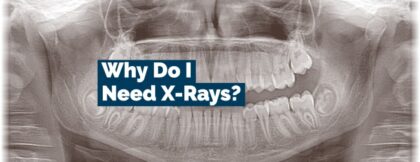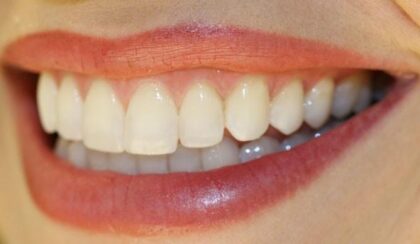Are you unsure about what your New Year’s resolutions should be? Consider resolving to break bad dental habits at work. These bad habits might be causing more damage to your teeth than you think.
At work, are you:
- Nail biting?
- Smoking?
- Drinking sweetened drinks?
- Crunching ice?
- Opening things with your teeth?
All of these behaviors can cause serious dental issues down the road. Below are some tips on how to curb these bad dental habits during the workday.
Nix Nail Biting
Seemingly innocuous, nail biting is a bad dental habit that can cause more damage than meets the eye. Nail biting transfers dirt and bacteria from under the fingernail to the mouth and gums, putting you at greater risk of becoming ill. According to the Academy of General Dentistry, nail biting can crack or wear down teeth. A study in the AGD’s journal, General Dentistry, found that nail biters and people who chew on items like pencils are more prone to developing bruxism, which is involuntary tooth clenching or grinding that can cause serious tooth and jaw issues.
Kick the habit this year by keeping fingernail clippers at your desk. You can also try an anti-nail biting polish that’s applied directly on the fingers. Look for a brand that doesn’t come off with regular hand washing. After you’ve succeeded in letting your nails grow, reward yourself with a manicure.
Stop Smoking
According to the Centers for Disease Control and Prevention, using tobacco doubles your risk of developing gum disease. Gum disease occurs when plaque and bacteria build up under the gums to such an extent that the gums pull away from the teeth. These exposed areas of the teeth are prone to infection and deterioration. Advanced cases can even result in tooth loss.
Tobacco use weakens your immune system, making your body less able to ward off gum infection. It also diminishes the efficacy of gum disease treatment. Do the right thing for your dental health this year and do your best to stop smoking.
Curb Sugar in Drinks
Sweetened creamer in coffee, soda at lunch, and even a glass of juice between meals can all contribute to tooth decay. Having the bad dental habit of keeping sugar in your mouth throughout the day causes bacteria to grow. This bacteria produces acid that erodes tooth enamel.
Keep your smile healthier at work by cutting excess sugar out of your drinks. Look for ways to swap in lower-sugar alternatives. Instead of a sweetened creamer, try using cream in your morning coffee. Sub sparkling water for your lunchtime soda. Carry bottled water to drink between meals instead of juice or other sweetened drinks. Cutting the sugar out of your beverages will go a long way toward keeping your teeth healthier during the workday.
Quit Crunching Ice
Office stress affects everyone, but don’t let it get to your teeth. Bad dental habits from stress, like crunching ice, can take a big toll on your teeth. Crunching on large amounts of ice can chip or break teeth, make them more sensitive to pain and temperature, and make fillings fall out or necessitate other dental work.
Be kind to your teeth by finding another outlet for stress. Take a cue from your kids and keep a toy like a stress ball, thinking putty, or fidget spinner nearby to help relieve negative energy.
Don’t Open Things with Your Teeth
Using your teeth to tear open bags, cut strings, or unscrew bottle caps is another bad dental habit. Employing your teeth as tools puts you at risk of chipping or breaking your teeth.
Instead, reserve your teeth for chewing food. Make it a point to keep scissors and other tools handy at your desk so that you don’t have to resort to using your teeth.
If you need assistance in breaking bad dental habits at work, contact Affiliated Dentists. Along with many other services, we provide general dentistry in Madison, Wisconsin at our two locations:


